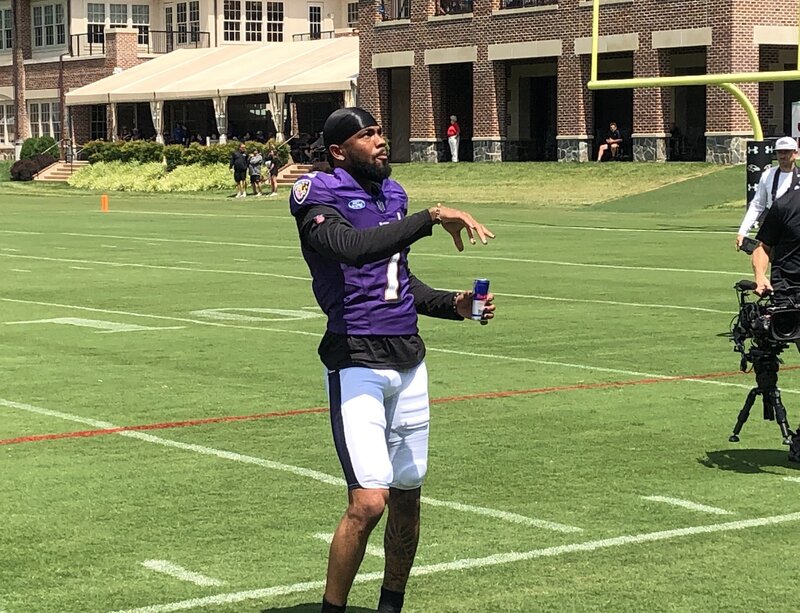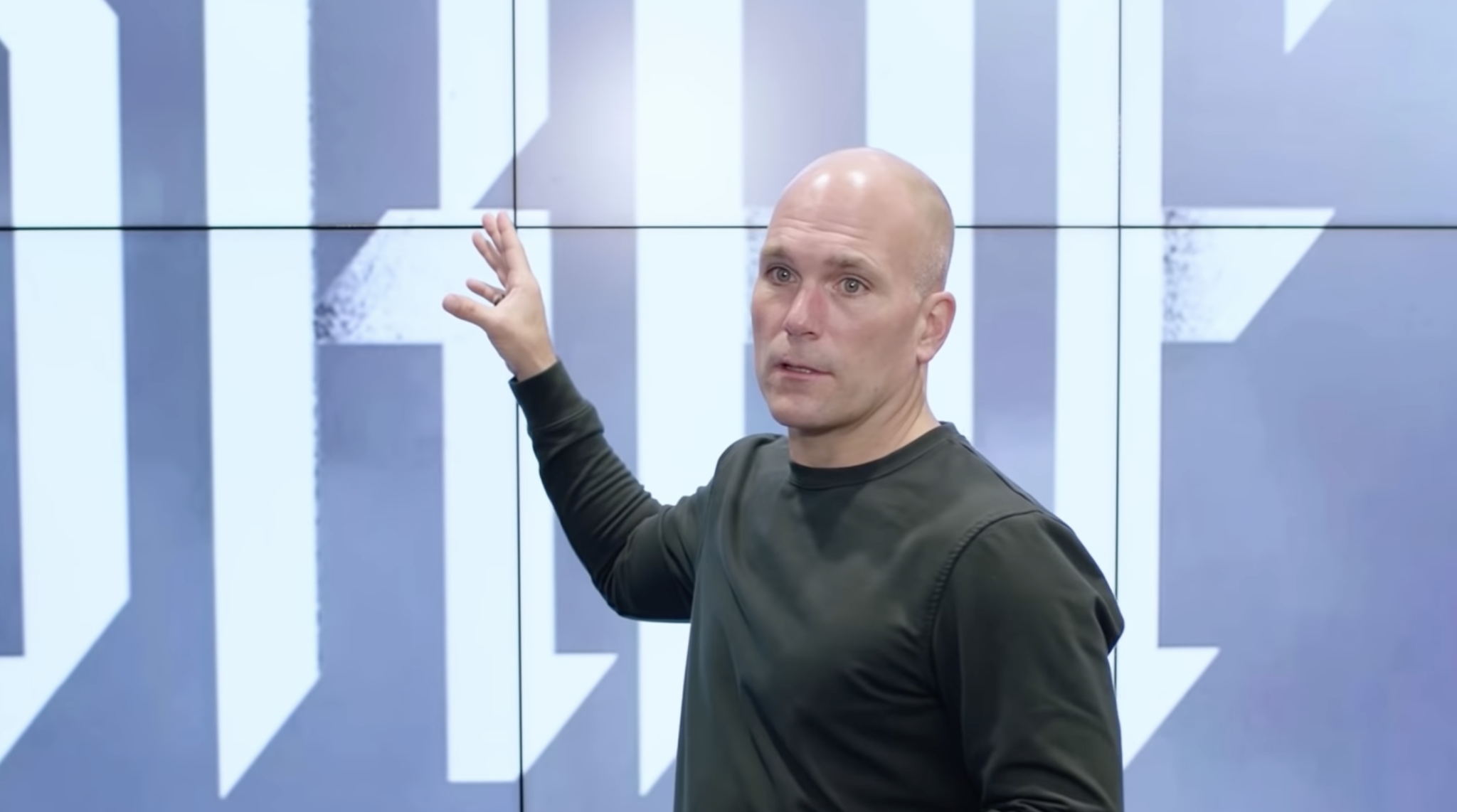Head coach John Harbaugh said it all in the aftermath of a 34-17 loss to Cincinnati on Sunday that resulted in the Ravens missing the postseason for the first time since 2007.
Despite reaching the pinnacle of the NFL last February in winning their second Super Bowl title in franchise history, the Ravens simply weren’t good enough a year later.
“We’re not ever going to be content with not making the playoffs,” Harbaugh said. “That’s just not something that’s going to be OK with any of us.”
Harbaugh is right, and it’s the Ravens’ vast success over the last five years that’s cultivated such an appropriate mindset. It’s easy and fair to be disappointed, but the Ravens gave this city a terrific run that included five straight playoff appearances, three AFC Championship appearances, and a Super Bowl title. History has proven over and over that you can’t be great every year and no run of success will last forever.
General manager Ozzie Newsome, Harbaugh, quarterback Joe Flacco, and others have built a great deal of equity for fans to remain confident that the Ravens will be back in 2014 and beyond, but this winter brings a critical offseason with many issues to address. A proven track record is invaluable, but the NFL is a results-driven endeavor and Baltimore didn’t meet its own high standards laid out in recent years.
Season-long issues once again reared their head Sunday as a poor offense doomed the Ravens in Cincinnati. An overwhelmed offensive line was unable to handle the Bengals’ pressure, the running game was a non-factor, wide receivers were unable to gain separation, and a hobbled Flacco made poor decisions and couldn’t connect on deep balls throughout the day.
Defensively, the Ravens were able to force four turnovers but also allowed nearly 400 yards of offense and 27 points — the Bengals’ final touchdown came on an interception returned for a touchdown. The Baltimore defense was an above-average unit this season but gave up big plays and long drives at critical junctures, failing to be the game-changing unit Newsome envisioned when he allocated most of his available cap space to upgrading that side of the ball this past offseason.
So, what do the Ravens need to change, improve, and address this winter?
The heavy lifting will be done by Newsome, who didn’t have a good offseason this past winter in trading away veteran wide receiver Anquan Boldin and failing to improve the offense around Flacco. The injury to tight end Dennis Pitta couldn’t be predicted, but the failure to address the receiver position in the wake of Boldin’s departure was a mistake. Philosophically, the Ravens turned away from what won them a Super Bowl last February in sacrificing offense for defense and the former suffered dramatically because of it.
Newsome will also be dealing with a tight salary cap that includes a projected $70.9 million in space devoted to just six players: defensive tackle Haloti Ngata ($16 million), Flacco ($14.8 million), linebacker Terrell Suggs ($12.4 million), cornerback Lardarius Webb ($10.5 million), running back Ray Rice ($8.75 million), and right guard Marshal Yanda ($8.45 million). Barring any restructuring of the other contracts, only the release of Suggs would provide substantial cap relief as he’s scheduled to receive a $7.8 million base salary in the final year of his current deal.
That could spell the end of Suggs’ 11-year run in Baltimore unless Newsome and the Ravens try to work out a short-term extension that gives the veteran some upfront money and a lower cap figure for 2014. Suggs finished the year with 10 sacks but collected only one in his final eight games and made very little impact down the stretch.
The Ravens must address an offensive line that includes two free-agent tackles (Eugene Monroe and Michael Oher) and second-year center Gino Gradkowski, who struggled immensely in his first year as a starter. It’s unlikely that Oher will return, but Baltimore would surely like to retain Monroe after giving up two 2014 draft picks to acquire him from Jacksonville earlier in the season. They could then look to the draft to address the right tackle position or consider moving Kelechi Osemele back to the position where he played during most of his rookie year and look at guard prospects.
Improving the offensive line would go a long way in fixing a running game that was the worst in franchise history, though questions will remain about Rice’s future as a feature back.
Tight end Dennis Pitta will be an unrestricted free agent and gauging his value in the open market will be difficult after he missed most of the season with a serious hip injury, making the franchise tag a possibility to keep him in Baltimore for another season. Jacoby Jones will also hit the open market, and the Ravens must decide whether the value of his big-play ability as a returner is worth a new contract despite his shortcomings as a wideout.
The Ravens need more offensive play-makers as Torrey Smith wasn’t as productive in the second half of the season and Rice battled through injuries and ineffectiveness in the worst campaign of his career. Flacco’s underwhelming 2013 performance suggests he isn’t the rare quarterback who can dramatically elevate the play of lesser talent around him.
On the other side of the ball, defensive tackle Arthur Jones, linebacker Daryl Smith, strong safety James Ihedigbo, and cornerback Corey Graham are all scheduled to become free agents. Each is a capable player that makes a defense better, but younger and cheaper alternatives will be preferred in most cases with much work to do on the other side of the ball and little available cap space.
The Ravens will need to take a look at a pass rush that was ineffective down the stretch as well as the safety position where defensive coordinator Dean Pees was essentially forced to play two strong safeties — Ihedigbo and rookie Matt Elam — in the starting secondary. However, Newsome and the Ravens can’t make the same mistake they did this past year in focusing too much on the defense while allowing the offense to suffer.
As for coaching, Harbaugh has his flaws when it comes to time management and in-game decisions that must be assessed internally, but his track record speaks for itself after missing the playoffs for the first time in his six-year run with the Ravens. The addition of run-game coordinator Juan Castillo did not work with the Ravens finishing last in the NFL in yards per carry, so it will be interesting to see if the former Eagles offensive line coach quietly parts ways with the organization this winter.
Offensive coordinator Jim Caldwell deserves plenty of credit for his role in jump-starting the Ravens offense when he took over for Cam Cameron last December, but his calls this season too often lacked imagination in trying to overcome personnel deficiencies and the red-zone offense was another major deficiency. It’s worth noting that Caldwell had never been an offensive coordinator prior to his late-season promotion in 2012, so you wonder if the Ravens will — and should — at least take a look at the possibility of adding another strong offensive mind to the equation if not making a change at coordinator altogether.
It won’t be an easy offseason as Harbaugh, Flacco, and a number of others face the reality of not being good enough to play in January for the first time. It’s uncharted territory for the head coach and quarterback, and it will be interesting to see how the pair responds in overcoming that failure.
Sunday marked the official end of the Ravens’ reign as Super Bowl champions as well as a five-year run of success that may never be seen again in Baltimore. They battled all season, but the Ravens just weren’t good enough to overcome their many weaknesses and ran out of gas in their final two games against better opponents.
Nothing lasts forever, but a strong nucleus is in place to rebound in 2014 and beyond.
And Ravens fans can take satisfaction in that simple truth while coping with the unfamiliar disappointment of a quiet January and an uncertain offseason to follow.










